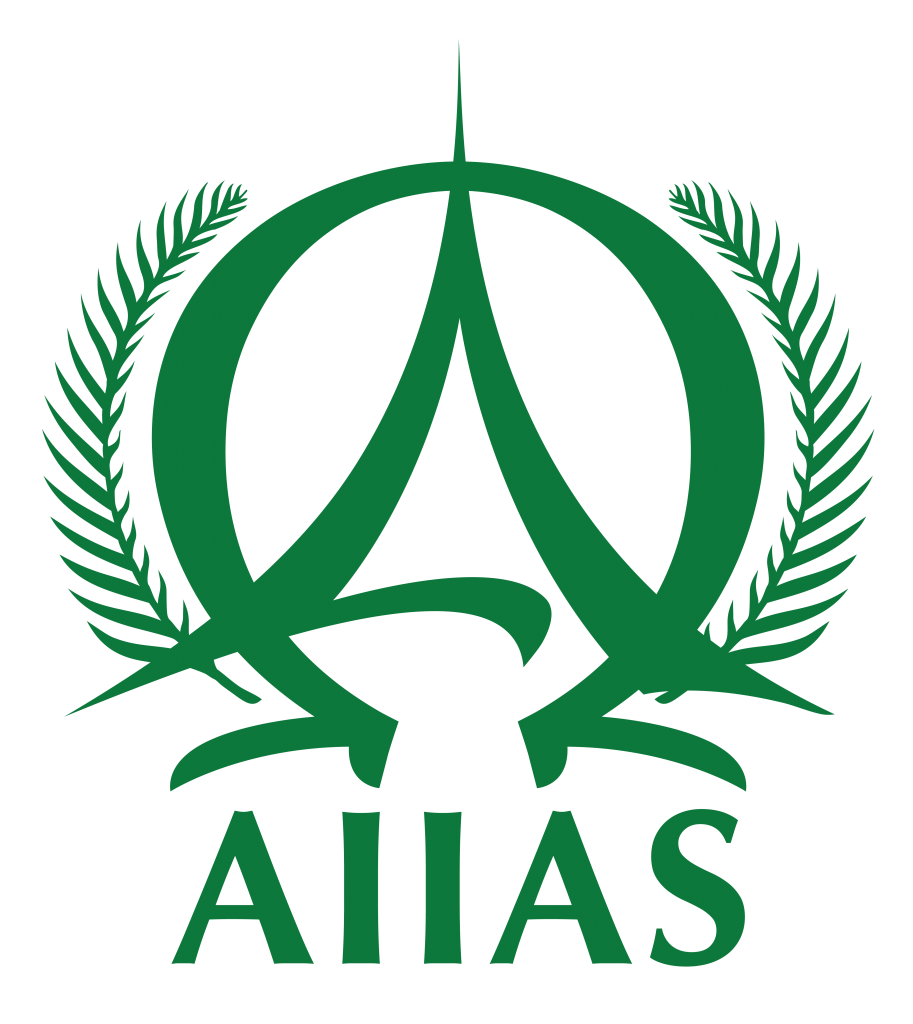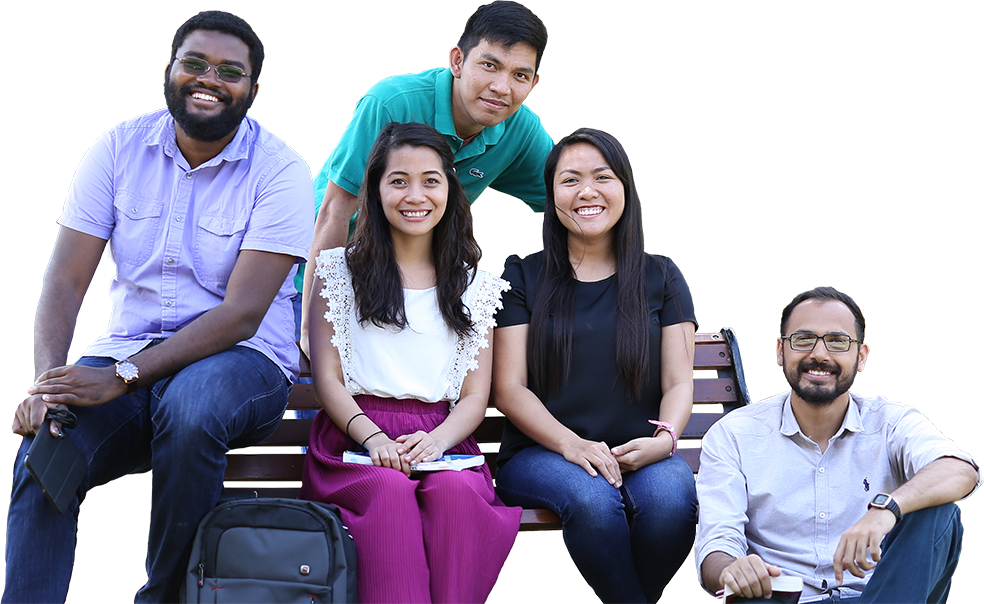Written by: Ascend Star Jenson
From November 18 to 20, 2025, the Adventist International Institute of Advanced Studies (AIIAS) hosted its 26th International Research Conference (IRC) under the theme “Embracing AI for Smarter Business, Education, and Public Health.” Over three days, scholars, practitioners, and students gathered at the AIIAS Amphitheatre to discuss the rewards, pitfalls, and transformative potential of AI. The conference highlighted a central truth: AI is not a replacement for human intelligence, but a tool that, when used wisely, can enhance human progress. Through keynote addresses, plenary sessions, and concurrent presentations, participants examined how AI is reshaping healthcare, transforming education, and driving innovation in business, while also grappling with ethical questions, societal implications, and spiritual responsibilities.
The opening day set the tone with a keynote by Dr. Arnel D. Zamayla of Mindanao State University Iligan Institute of Technology, who spoke on “Between Promise and Peril: Rethinking AI’s Role in Human Progress.” He reminded participants that AI is neither inherently good nor bad, but a tool whose impact depends on human choices. His message underscored the importance of wisdom, ethics, and responsibility in harnessing AI’s potential. The first plenary session featured a representative of H.E. Agus Widjojo, Ambassador of Indonesia to the Philippines, who shared how Indonesia is embracing AI while acknowledging challenges of access and equity. Her remarks highlighted the uneven distribution of technological resources and the need for inclusive strategies to ensure that AI benefits all segments of society. The day concluded with Dr. Vinay Samuel Gaikwad of Fortis Hospital, India, who presented “Artificial Intelligence: The Role of Robotic Surgery in the Current Era.” His talk illustrated how AI-driven surgical innovations are transforming healthcare, improving precision, and reducing recovery times, demonstrating AI’s tangible impact on patient outcomes and the future of medical practice.
The second day spotlighted AI’s transformative role in education and research. Dr. Eugene Rex Jalao of the University of the Philippines Diliman delivered the keynote “AI in Education and Research,” urging institutions to integrate AI responsibly to enhance learning and scholarly productivity. He emphasized that AI should be seen as a partner in research, enabling efficiency while preserving the creativity and critical thinking that define human scholarship. This theme continued with Dr. Rogelio T. Galera Jr. of the Commission on Higher Education (CHED) Region IVA, who spoke on “AI in Education: Transforming Teaching and Learning for the Future.” He emphasized that AI should empower teachers and students, not diminish their intellectual engagement. His presentation addressed common fears that AI might make students “think less,” countering with the argument that AI can free educators to focus on mentoring, creativity, and relational aspects of teaching. The focus then shifted to medicine and biomedical research as Dr. Joy John Mammen of Christian Medical College Vellore presented “Emerging Computational Methods in Health and Disease.” He showcased how AI can accelerate diagnostics, improve patient care, and support biomedical research, highlighting the intersection of technology and medicine where computational tools are becoming indispensable in tackling complex health challenges.
The final day broadened the lens to public health and organizational transformation. Dr. Zeno L. Charles-Marcel, Health Director of the Worldwide Seventh-day Adventist Church, opened with “AI in Public Health: A Multimodal Framework for Detection, Forecasting, and Intervention.” He highlighted AI’s potential to anticipate health crises, guide interventions, and strengthen global health systems. In one of the most memorable lines of the conference, Dr. Zeno remarked: “AI may beat a computer, AI may beat a person, but AI may never beat a person and a computer working together.” His statement captured the essence of collaboration, showing that the greatest strength lies in synergy between human wisdom and technological capability. Following him, Dr. Maria Cecilia Torres of the Polytechnic University of the Philippines presented “From Algorithms to Action: Understanding AI in Public Health,” stressing the importance of translating data into actionable policies and reminding participants that technology must ultimately serve human well-being. Business and healthcare applications were explored by Apner Roger Tilaar of Siloam Hospital Group in “AI Transformation: Smarter Business, Smarter Healthcare, Smarter Future.” His presentation demonstrated how AI is reshaping organizational models, improving efficiency, and driving innovation in both corporate and clinical settings. The conference concluded with Dr. Kenneth Swansi, Dean of the AIIAS Graduate School, who presented “AI Adoption Model in Higher Education.” He emphasized that the journey with AI in universities cannot stop at simple adoption or merely using the technology. Institutions must move beyond adoption to integration, where AI becomes embedded into teaching, research, and administrative systems. Ultimately, the goal is transformation, where AI reshapes higher education itself, enabling new models of learning, collaboration, and knowledge creation. To illustrate the varied attitudes toward this process, Dr. Swansi offered a memorable metaphor, inviting participants to consider whether they would be AI boosters (optimistic advocates eager to reap benefits), doomsters (skeptical critics anxious about risks), or roosters (cautious optimists balancing opportunities with vigilance). His framing encouraged reflection on both personal and institutional readiness to not only adopt AI but to integrate it meaningfully and allow it to transform higher education for the future.
Beyond the keynotes and plenaries, concurrent sessions featured faculty and student researchers from AIIAS, AUP, and partner institutions. These sessions embodied the idea that research is a conversation, a dynamic exchange of ideas, perspectives, and evidence that enriches scholarly communities. Presenters shared studies on diverse applications of AI, from education and theology to business and health sciences, reinforcing the interdisciplinary nature of the conference and the importance of dialogue in advancing knowledge.
Across the three days, several recurring insights emerged, each carrying both practical and spiritual resonance. Participants were reminded that AI will not replace humans, but individuals may be replaced by those who know how to use AI effectively. AI enhances efficiency and productivity, freeing humans to focus on relationships and uniquely human qualities. Critical thinking and creativity remain irreplaceable, as AI cannot diminish human intelligence when used responsibly. Integrity and ethics must guide AI use, ensuring technology serves humanity rather than undermines it. Fears of job loss and diminished student engagement must be addressed through responsible integration and education. Importantly, AI should also be embraced as a tool for mission, harnessed to spread the gospel, support education, and serve communities with wisdom and compassion.
The 26th AIIAS IRC demonstrated that embracing AI requires both enthusiasm and discernment. While AI offers transformative possibilities in business, education, and public health, its impact will be shaped by how humans choose to use it. As the conference closed, participants were reminded that the choice is ours: to be boosters, doomsters, or roosters. In the end, the call was clear, to embrace AI not as a replacement for human intelligence, but as a partner in advancing human progress. The conference succeeded not only in presenting cutting-edge research but also in fostering dialogue, collaboration, and reflection.
By bringing together diverse voices, the IRC reaffirmed that the future of AI is not predetermined; it is a conversation we must continue, guided by wisdom, ethics, and a commitment to human flourishing under God’s guidance.

